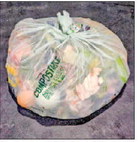Flu and cold season is here. What does that mean now?


by CJ Blomquist
OptumCare
Cold and flu season is nothing new, but with the added dangers of COVID-19 and its variants, this season is going to be different. Here’s what everyone should know: Do your part. Wearing a mask, social distancing and handwashing are all important ways to slow the spread of viruses, including COVID and influenza. Getting vaccinated is a person’s strongest line of defense against the virus Get vaccinated. Now is the time for anyone who hasn’t already done so to get vaccinated against COVID. And everyone should get a flu shot, too. The Centers for Disease Control and Prevention has stated it is safe to get both vaccines at the same time. Anyone unsure if either or both vaccines are right for them should talk to their primary care doctor, who will know their unique health needs and can help them make the best decision.
The regular flu vaccine is a lot stronger this year. It’s also not made with eggs, which is good news for those who have an allergy to eggs.
Don’t let your guard down.
Once people are vaccinated against both COVID and the flu, their bodies will be better protected against the viruses and their variants. But remember: These viruses are like hitchhikers; they will take a ride from anyone they meet. While vaccinated people may be protected, they can still carry the viruses to other people.
Stay home. There’s a lot of dust and smoke in the air, but there are a lot of germs, too. For anyone feeling under the weather, the best thing to do is stay home. Spend a day or two resting with some favorite movies and good books, even a nap or two.
Anyone experiencing bad symptoms should contact their primary care doctor. If their symptoms are manageable, they should be able to treat the virus at home. Emergency rooms are filling up quickly, and there are limited supplies and staff. Only go to the emergency room for life-threatening issues.



